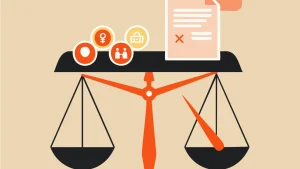If your phone has started ringing with unfamiliar numbers and a caller says they are from Checkbook Systems, it can create instant stress. Maybe they are talking about an old medical bill, a store account you barely remember, or a check that supposedly bounced years ago. You may not even recognize the creditor name they mention.
At that moment, people often jump online and search for phrases like Checkbook Systems harassment just to understand whether what is happening is legal and how to make it stop. Others try to confirm whether the call is even real by looking for an official Checkbook Systems phone number so they can verify who they are dealing with before sending any money.
The important thing to know is that you have rights. Even if a debt is legitimate, a collector is not allowed to threaten you, mislead you, or wear you down with constant calls. This guide explains who Checkbook Systems is, why they might be contacting you, how to recognize harassment, what the law says about debt collection and credit reporting, and what you can do right now to protect yourself. You will also see how Consumer Rights Law Firm PLLC can step in between you and the collector so you are not handling everything alone.
Who Checkbook Systems Is
Public collection directories list Checkbook Systems as a Pennsylvania collection agency located in Stroudsburg, with an address of RR 2 Box 2159A, Stroudsburg, PA 18360 9542. This means it is a third party company that other businesses hire when they want help collecting unpaid accounts. It is not a bank or lender, and it is not the original provider of your medical care or utilities.
According to the same directory, Pennsylvania collection agencies like Checkbook Systems typically offer services such as
- 👉 Sending collection demand letters
- 👉 Making debt collector phone calls
- 👉 Reporting unpaid accounts to credit bureaus
- 👉 Supporting legal proceedings such as lawsuits for unpaid debts
In other words, if you are hearing from this company, it is because a creditor believes you owe money and has asked this agency to pursue it.
There is not a single universally published Checkbook Systems phone number across major public sources, which makes it even more important that you carefully verify any number that appears on your caller display or in a letter before responding.
Why You May Be Hearing From Checkbook Systems

Checkbook Systems does not originate accounts. It does not treat patients, provide utilities, or issue credit cards. Instead, it steps in when other businesses send accounts to collections. That usually happens after the creditor has sent its own statements and reminders and still has not been paid.
Some common situations in which a creditor might send your account to Checkbook Systems include
- ➡️ A medical or dental bill that remained unpaid after insurance and office billing
- ➡️ A utility or service account that still had a balance after you moved or changed providers
- ➡️ A returned check for goods or services that was never resolved
- ➡️ A retail or local business account where payments stopped and the balance remained
By the time Checkbook Systems contacts you, the debt may be several months or even years old. Fees or interest may have been added, and the account might have already passed through one or more other collectors. That increases the chance of clerical errors, outdated information, or even mistaken identity. This is one reason why you should never feel pressured into paying immediately on a first call.
❇️ Trinity Hope Associates, LLC Debt Collection Harassment?
Is Checkbook Systems Legitimate Or A Scam
Checkbook Systems appears in a national directory of collection agencies as a Pennsylvania based collection company that assists creditors with accounts receivable recovery. That means it is a real business, not a name invented out of thin air.
However, legitimacy does not guarantee that every action the company or its staff takes is fair, accurate, or legal. Real agencies can still engage in Checkbook Systems harassment, and real agencies can still try to collect debts that are outdated, miscalculated, or tied to the wrong person. At the same time, scammers sometimes pretend to be known agencies to sound convincing.
Because of that, whenever you receive a call from someone who claims to be from this company, your first job is not to argue or pay. Your first job is to verify who you are dealing with and what they are claiming.
How To Verify A Checkbook Systems Phone Number Safely

When you receive a call you did not expect, it is easy to freeze. Instead of responding on impulse, treat the call as a chance to gather information. If the caller says they are from Checkbook Systems, calmly ask for
- ✅ The full company name
- ✅ The mailing address they use
- ✅ A direct Checkbook Systems phone number you can call back
- ✅ The name of the original creditor
- ✅ A general description of the account and the date it was opened or used
Write this information down. Then tell the caller you prefer not to discuss anything further until you receive written notice. End the call politely.
Next, compare the address you were given with the Stroudsburg address listed in public directories. If the caller gave you a Checkbook Systems phone number, look it up online and see whether it matches other reports of contact numbers for the company or whether it appears only in suspicious complaints.
If details do not match or the caller refused to provide basic information, treat the call as suspicious. Even if the information does match, you still have the right to demand written proof and to take time before making any decisions. Verification is about confirming identity, not about waiving your rights.
❇️ Stop Conserve Collection Agency Phone Harassment Today
What Checkbook Systems Harassment Looks Like
A single polite phone call or letter about a real bill is not harassment. Checkbook Systems harassment happens when the conduct of the agency crosses reasonable lines and becomes abusive, deceptive, or relentlessly intrusive.
Examples of behavior that may qualify as checkbook systems debt harassment include
- ➤ Calling several times a day about the same debt, especially after you have already explained your situation
- ➤ Calling very early in the morning or late at night in your time zone
- ➤ Contacting you at work after you have clearly said that your employer does not allow such calls
- ➤ Using a harsh or shaming tone, speaking to you as if you are a bad person rather than a person with a financial problem
- ➤ Making vague threats about lawsuits, garnishment, or legal trouble without explaining the process
- ➤ Refusing to send written details about the account when you ask for them
- ➤ Pushing you to make an immediate payment over the phone during the first contact
One or two awkward interactions may not rise to the level of Checkbook Systems harassment, but a pattern of this type of behavior is exactly what consumer protection laws are designed to address. That is why it is important to document what is happening from the very first contact.
Your Rights Under The Fair Debt Collection Practices Act

If you live in the United States and Checkbook Systems is collecting a personal or household debt, such as a medical bill or consumer account, the Fair Debt Collection Practices Act protects you. This federal law controls what third party collectors are allowed to do when they pursue debts.
Under the FDCPA, a collector such as Checkbook Systems may not
- ➥ Call you before eight in the morning or after nine at night in your local time
- ➥ Contact you at times or places that it knows are especially inconvenient
- ➥ Call you repeatedly with the intention of annoying, abusing, or harassing you
- ➥ Use profanity, insults, or threats of violence
- ➥ Misrepresent the amount you owe or pretend that fees or interest exist when they do not
- ➥ Claim to be a lawyer, court official, or government agent if that is not true
- ➥ Threaten arrest or criminal charges for not paying a civil debt
- ➥ Tell most third parties about your debt, including neighbors, coworkers, or extended family
In addition, the FDCPA says that within a short time after first contact, Checkbook Systems must send you a written notice that includes
- 👉 The amount of the debt
- 👉 The name of the current creditor
- 👉 A statement that you have the right to dispute the debt in writing within a specified period
If you send a timely written dispute and ask for validation, the company must stop most collection activities until it sends you verification of the debt. Continuing to pressure you without honoring this process can support a claim that FDCPA violations have occurred.
If Checkbook Systems harassment leads to a proven violation, you may be entitled to statutory damages, compensation for actual harm such as emotional distress or lost wages, and recovery of attorney fees.
Your Rights Under The Fair Credit Reporting Act
Collection activity often goes hand in hand with credit reporting. If Checkbook Systems reports an account to the major credit bureaus, that entry can damage your credit score and affect your ability to get loans, housing, or even certain jobs.
The Fair Credit Reporting Act is the main federal law that governs how consumer information is reported and used. Under the FCRA
- ✔️ Information about you must be accurate and complete
- ✔️ Negative entries such as collection accounts are subject to time limits
- ✔️ Companies that furnish information to credit bureaus must correct or delete data they discover is wrong
If you see a collection entry tied to this company on your credit reports and you believe it is inaccurate, you have the right to dispute it in writing with both the credit bureaus and the furnisher. After you dispute, the bureaus must investigate and the company must check its records. If they cannot substantiate the information, it should be removed or corrected.
When checkbook systems debt harassment includes inaccurate credit reporting that costs you money, opportunities, or reputation, you may be able to seek damages under the FCRA in addition to FDCPA protections.
How To Handle The First Contact From Checkbook Systems

When you first hear from this, keep your focus on staying calm and organized.
Start by creating a simple record that you update every time there is contact. Write down
- ➤ Date and time of the call or letter
- ➤ The Checkbook Systems phone number that showed on your caller display or message
- ➤ The name of the representative
- ➤ A brief description of what was said, including any threats or promises
Save all letters and notices. Screenshot text messages and call history if you can. If you receive emails, store them in a folder. This record will later help show whether this company harassment is happening and will make it easier for a lawyer to evaluate your case.
Next, do not agree to pay anything during the first stressful call. Instead, tell the representative that you want written information about the alleged debt. Wait to see the written notice, then compare it with your own records. Ask yourself
- ➜ Do you recognize the creditor
- ➜ Does the amount seem realistic
- ➜ Does the date of the alleged default or last payment make sense
If the account seems unfamiliar, if the amount looks inflated, or if it appears the debt is many years old, you should strongly consider disputing it.
Steps To Dispute A Debt And Demand Validation
If you believe the debt is wrong, not yours, too old, or otherwise questionable, you have the right to dispute it in writing. A phone call alone will not preserve your rights under the FDCPA.
In your dispute letter to Checkbook Systems, you can
- 👉 State that you dispute the debt in full or in part
- 👉 Request the name and address of the original creditor if that information is not clear
- 👉 Ask for an itemized breakdown showing principal, interest, fees, and any costs
- 👉 Ask for copies of any documents that show you are legally responsible for the account
Send your letter using a method that gives you tracking and proof of delivery. Keep copies of everything you send along with the postal receipt.
Once they receive your dispute, it must pause most collection activity until it sends validation. If the company continues to call and demand money without providing proof, that pattern may be evidence of checkbook systems debt harassment and can strengthen any claim you bring.
During this time, you should not make payments or agree to settlement terms until you fully understand what is being claimed and have confirmed that the claim is valid and enforceable.
Protecting Yourself From Ongoing Checkbook Systems harassment
Even when a debt is valid, you do not have to accept endless disruptive calls. You have the right to set reasonable limits on how they contact you.
If you are receiving calls at your job, you can clearly tell the representative that your employer does not allow personal calls and that calls to your workplace must stop. If they continue to call you at work after that, it may constitute Checkbook Systems harassment under federal law.
You can also inform the company that certain times are not convenient and that you prefer communication in writing. Follow up this request with a letter so you have proof.
If necessary, you can send a stronger letter instructing they to cease most direct communication altogether. After it receives such a letter, the agency is generally limited to a small number of specific contacts, such as providing notice of legal action. If calls continue beyond what the law permits, that conduct can become powerful evidence for your case.
Many people also benefit from letting unknown numbers go to voicemail while they sort things out. Listening later allows you to update your records without being pressured into quick promises.
➡️ How to Stop Associated Credit and Collection Bureau Phone Harassment
When Legal Threats Or Lawsuits Appear

Sometimes a collection agency will hint at possible legal action. Other times it will send real court papers. It is important to know the difference.
A collector is allowed to explain that a creditor can choose to sue and that a judgment may lead to garnishment or other remedies, depending on state law. However, it is not allowed to threaten lawsuits it has no intention of filing or to say that legal action has already been taken when it has not. Those kinds of statements can transform routine collection into Checkbook Systems harassment.
If you receive a summons and complaint listing you as a defendant, you are facing a real lawsuit and must take it seriously. The complaint usually states that you owe a certain amount and that the plaintiff, which may be a creditor or a debt buyer represented by this company, wants a judgment. The summons tells you how long you have to respond.
Ignoring court documents almost always leads to a default judgment. With a judgment, the creditor may gain more power to collect, depending on the law in your state.
A consumer rights lawyer can review the lawsuit, check whether the plaintiff has enough documentation to prove its case, and determine whether any defenses or counterclaims exist. In some situations, the alleged debt is too old to be sued on, or the collector cannot properly show that it owns the account.
How Consumer Rights Law Firm PLLC Can Help
You do not have to manage Checkbook Systems harassment on your own. Consumer Rights Law Firm PLLC focuses on representing people who are dealing with debt collection abuse and unfair credit reporting. The firm understands the tactics agencies use and the protections that federal law gives you.
Consumer Rights Law Firm PLLC
📌 133 Main Street Second Floor
North Andover MA 01845
📞 Phone 877 700 5790
✉ Email help@consumerlawfirmcenter.com
👤 Visit :Better Business Profile
The team at Consumer Rights Law Firm PLLC can
- ✅ Review your letters, call records, and credit reports for signs of FDCPA or FCRA violations
- ✅ Explain your rights in plain language so you know what they can and cannot do
- ✅ Communicate directly with the agency so you are no longer forced to answer every call
- ✅ Send formal demands that Checkbook Systems harassment stop and that any claimed debt be properly validated
- ✅ Help you dispute inaccurate credit or reporting entries tied to this agency
- ✅ Defend you in court if a lawsuit has been filed and challenge the evidence presented
- ✅ Pursue money damages when the company has violated your rights, including statutory damages and compensation for actual harm where available
Many consumer protection cases allow successful consumers to recover attorney fees from the collector, which often makes it possible to get legal help without paying large costs in advance.
Success Stories
- 🏆 I was being harassed by Accounting Systems Inc over a debt I didn’t even owe. The law firm reviewed my case, proved the debt was invalid, and forced them to remove it from my credit report. They even got me compensation for the illegal collection attempts. If you’re dealing with debt collector abuse, call these lawyers—they fight for you!
- 🏆 After Accounting Systems Inc threatened legal action and called my workplace, I reached out to Consumer Rights Law Firm PLLC. They were incredibly responsive and explained my rights clearly. They negotiated a resolution, stopped the harassment, and made sure the collectors followed the law. I couldn’t have asked for better representation!
- 🏆 Accounting Systems Inc was calling me multiple times a day, even after I asked them to stop. I felt bullied and stressed. Consumer Rights Law Firm PLLC stepped in, sent a cease-and-desist letter, and sued for violations of the FDCPA (Fair Debt Collection Practices Act). Not only did the calls stop, but I also received a settlement for the harassment. Highly recommend their expertise!
Frequently Asked Questions
Q1. What kind of company is Checkbook Systems❓
It is a Pennsylvania based collection agency located in Stroudsburg that works for other businesses to collect overdue accounts, including medical offices and other creditors, rather than lending money itself.
Q2. Why is Checkbook Systems contacting me❓
A2. You may be hearing from Checkbook Systems because a creditor believes you owe a past due balance. This can include medical bills, utility services, returned checks, retail accounts, or older debts that were transferred to collections after missed payments.
Q3. Is Checkbook Systems legitimate or a scam❓
A3. Checkbook Systems appears in national business listings as a legitimate collection agency. However, scams can involve imposters, so verifying their information, requesting written notices, and confirming account details before responding is always recommended.
Q4. How can I verify a Checkbook Systems phone number safely❓
A4. Ask the caller for the company’s full name, mailing address, callback number, original creditor, and account details. Write everything down and compare it with trusted directory information. Never share personal details until verification is complete.
Q5. What does Checkbook Systems harassment look like❓
A5. Debt harassment may include constant repeated calls, contacting you early or late, calling you at work after being told not to, refusing to send written information, using a shaming tone, or pressuring immediate payment during the first unexpected contact.
Q6. What rights do I have under the FDCPA❓
A6. The FDCPA protects you from abusive, threatening, misleading, overly frequent, or poorly timed collection communication. It requires written notice, limits calls, bars third-party disclosure, and requires collectors to pause activity if you dispute in writing.
Q7. What are my rights under the FCRA❓
A7. The FCRA ensures that negative credit reporting from Checkbook Systems must be accurate and timely. If a collection entry is incorrect, outdated, or unverifiable, you may dispute it with the credit bureaus and the furnisher, requiring them to investigate.
Q8. What should I do when Checkbook Systems contacts me for the first time❓
A8. Stay calm, document every interaction, save letters, and do not make payments immediately. Request written notice and review whether the debt amount, dates, and creditor information match your records before deciding how to respond or whether to dispute.
Q9. How do I dispute a debt with Checkbook Systems❓
A9. Send a written dispute and request validation, asking for account breakdowns, original creditor information, and proof of responsibility. Send the letter using trackable mail and keep copies. Collection should pause until written verification is provided.
Q10. How can Consumer Rights Law Firm PLLC assist with Checkbook Systems❓
A10. Consumer Rights Law Firm PLLC can review your records, stop direct calls, demand validation, dispute inaccurate reporting, defend you in lawsuits, and pursue compensation for FDCPA or FCRA violations, often without requiring large upfront legal fees.
Conclusion
Hearing from a collection agency is rarely pleasant, and when the agency is one you have never heard of, like this, the stress can be even worse. You may feel pressured to pay money you are not sure you owe or intimidated by the idea of lawsuits, damaged credit, or constant calls.
The reality is that you have much more power than it feels like in the moment. By verifying any Checkbook Systems phone number before responding, insisting on written proof, using your rights under the FDCPA and FCRA, keeping careful notes about every interaction, and reaching out to Consumer Rights Law Firm PLLC when you need support, you can turn a frightening situation into one you are actively managing.
You may not be able to erase the history that led to the debt, but you can insist that any collection activity that happens now is fair, honest, and legal. That is the foundation for protecting your financial future and your peace of mind.







